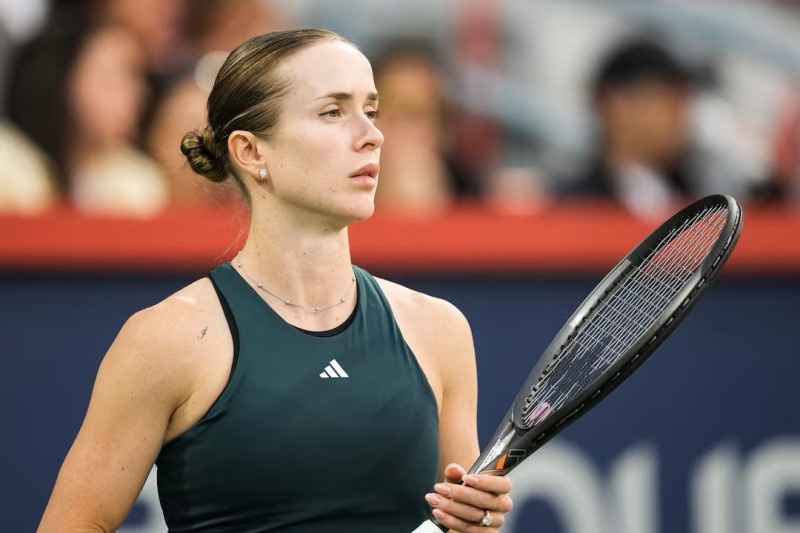Ukrainian tennis star Elina Svitolina revealed she received a torrent of online abuse—including death threats—following her straight-sets quarter-final loss to Naomi Osaka at the Canadian Open. The former world No. 3, now a mother, shared screenshots of the vile messages on Instagram, calling out the “shameful” behavior of disgruntled gamblers who targeted her and her family. Some of the threats even referenced Russia’s war in Ukraine, adding a disturbing political edge to the harassment.
In a defiant Instagram story, Svitolina condemned the abusive bettors, writing: “The way you talk to women—to mothers—is SHAMEFUL. If your moms saw your messages, they’d be disgusted.” The 30-year-old, who returned to tennis last year after giving birth, highlighted the emotional toll such attacks take on players, especially after tough losses. Her husband, French tennis veteran Gaël Monfils, has also faced betting-related vitriol, jokingly mocking gamblers who still wager on his matches despite his age.
A recent study by tennis governing bodies found that nearly half of all online abuse directed at players comes from angry gamblers. France’s Caroline Garcia, who spoke out after similar harassment at last year’s U.S. Open, criticized social media platforms for failing to curb the abuse. “It hurts players when we’re already emotionally destroyed,” Garcia said, expressing concern for younger athletes entering the sport. While authorities have tried blocking abusive accounts, the problem persists, leaving players vulnerable to toxic backlash.
Svitolina’s ordeal has reignited calls for the WTA and tech companies to take tougher action against online harassment. With gambling-related abuse on the rise, players are demanding better protections—especially for mothers and young athletes who face disproportionate vitriol. As Svitolina’s case shows, the line between competitive disappointment and dangerous harassment is increasingly blurred, raising urgent questions about how tennis can safeguard its stars in the social media age.


